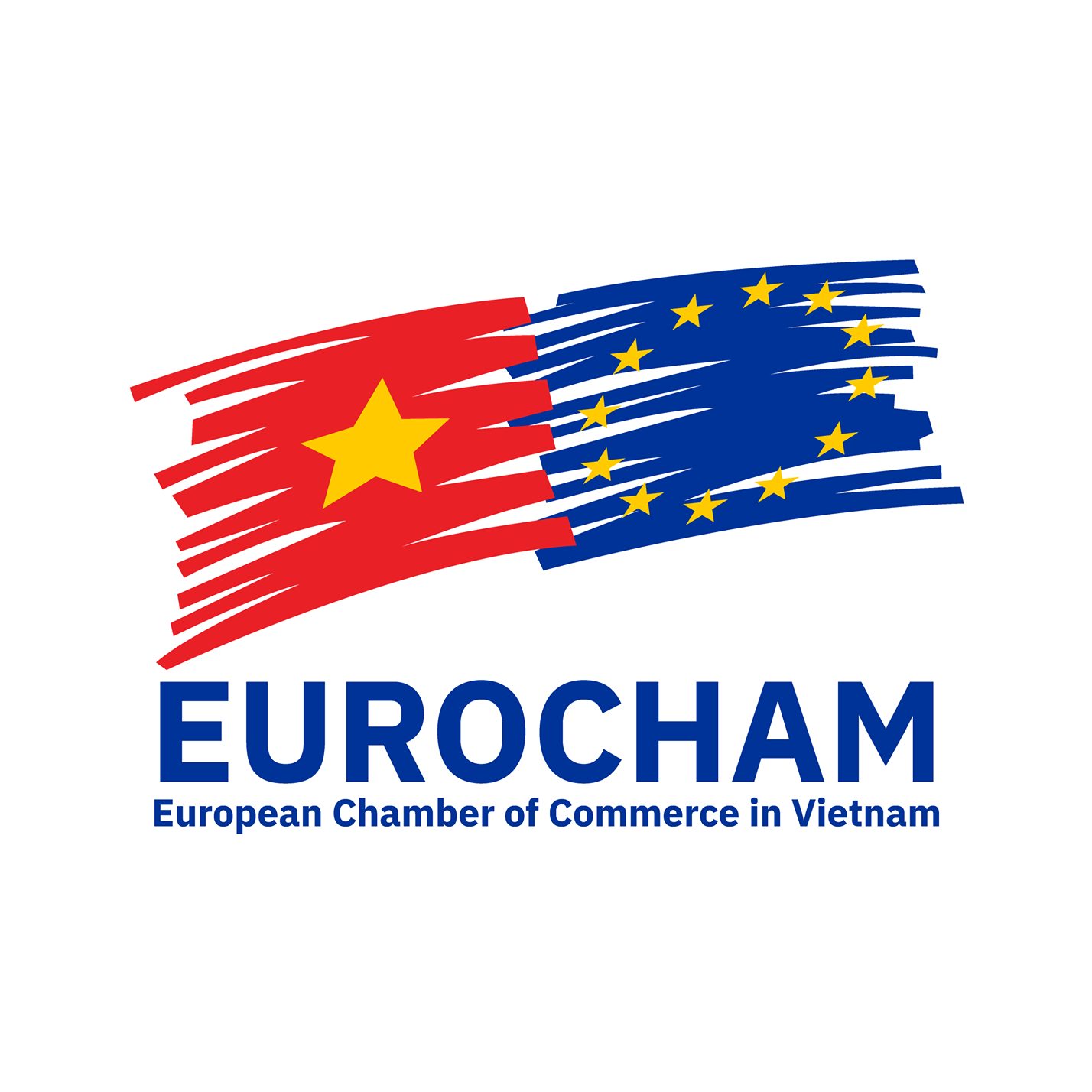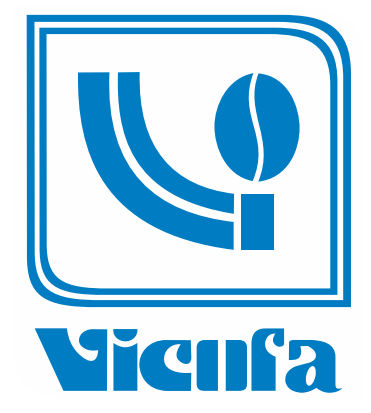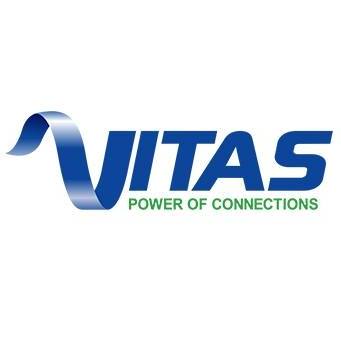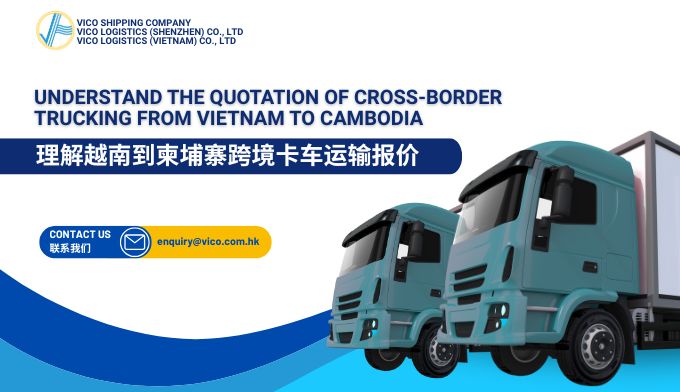
Doesn’t it scare you that you may be clueless on what is included in your Cambodia trucking quotation?
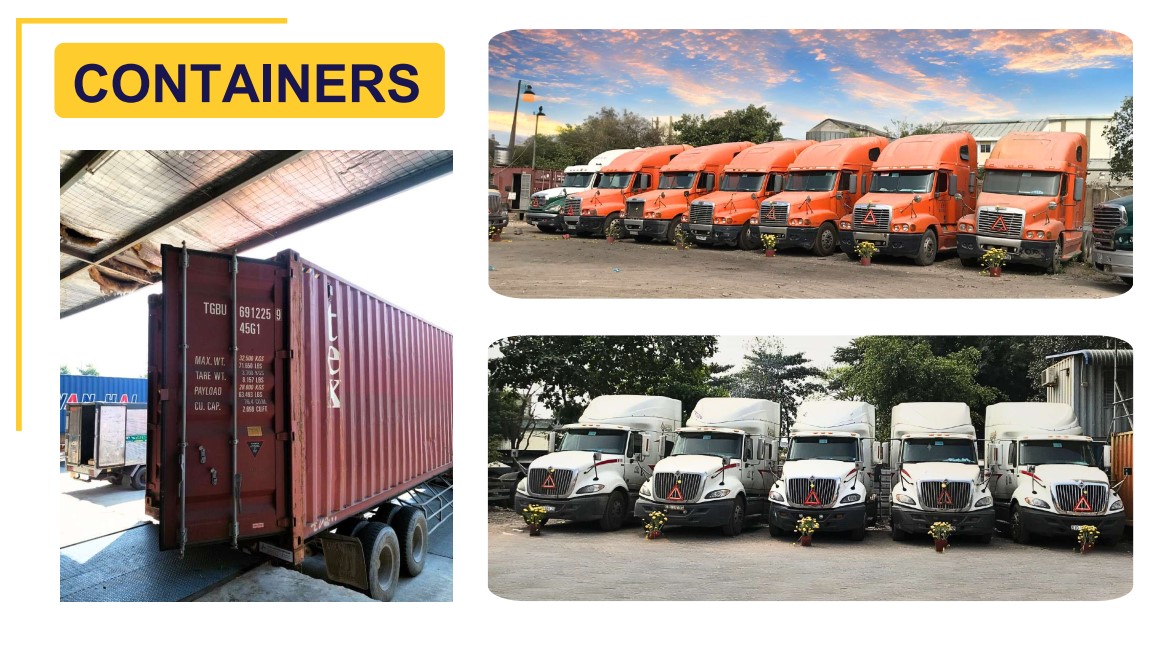
Understanding how logistics quotations are structured can be challenging, especially for cross-border trucking where multiple jurisdictions, fee structures, and service components come into play. For many businesses moving cargo from Vietnam and trucking to Cambodia presents complex pricing challenges that demand clear Cambodia trucking quotations. Clarity around cross-border trucking costs is essential not just for budgeting, but for operational planning and compliance.
At VICO Logistics, we believe in transparency and accuracy when preparing a trucking quotation for Cambodia. Whether you are shipping general goods or high-value cargo, we break down cross-border trucking costs so you know exactly what you're paying for.
In this guide, we walk through the key components of a standard cross-border trucking quote, explore common variables that influence cost, and explain how our quotations ensure you get what you’re paying for—no surprises, no hidden charges.
>> Quick Consultation at hotline: +(84)901877108
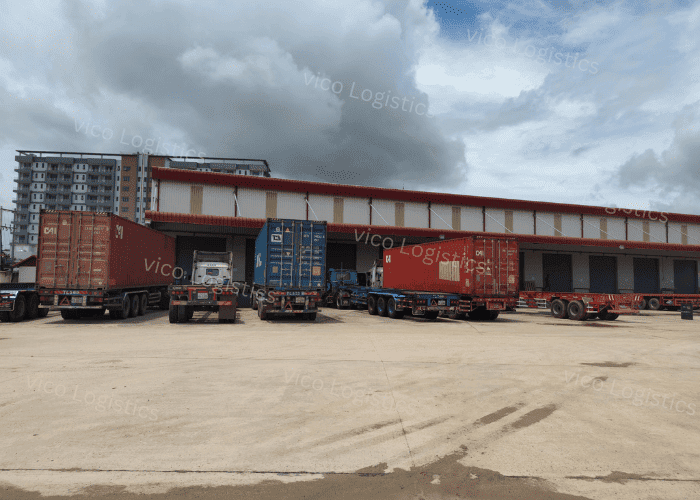
1. 10 Critical Questions a Cross-Border (Cambodia) Trucking Quotation Should Answer
When requesting a quotation for cross-border trucking to Cambodia, logistics managers and import-export professionals need more than a simple price—they need context, clarity, and assurance that no hidden costs will surface later. At VICO Logistics, we proactively address these 10 core questions to make sure your Cambodia trucking quotation is comprehensive and tailored to your Vietnam Cambodia freight needs.
>> How VICO LTL trucking can streamline textile fabrics manufacturing logistics in Vietnam
1.1 What is included in the base freight charge, and how is it calculated for my cargo?
The base freight charge is the foundational cost of moving your goods by road from Vietnam to Cambodia. However, this figure can vary depending on several factors. For example, trucking fees are often calculated based on cargo volume (CBM), weight (in kilograms or tons), or container type (FCL vs. LCL). Additional considerations include the origin and destination points, whether the delivery is door-to-door or terminal-to-terminal, and the required vehicle type.
Our Cambodia trucking quotations specify all these parameters clearly, so you understand exactly what is included.
1.2 What customs clearance fees apply in Vietnam and Cambodia, and are they included?
Customs clearance is a mandatory part of cross-border transport from Vietnam to Cambodia, and each country has its own fee structure.
- In Vietnam, this typically includes the export declaration and any inspection or scanning services.
- In Cambodia, import clearance involves coordination with local customs officers, submission of paperwork, and potentially, inspection-related costs.
- At VICO Logistics, we outline these charges separately in your Cambodia trucking quotation, so you can see what portion of your payment goes to border-related services.
1.3 What import duties and taxes will my shipment face upon entry into Cambodia?
Import duties and Value Added Tax (VAT) are imposed by Cambodian authorities and depend on the product’s Harmonized System (HS) Code. The HS Code classifies your goods for tariff purposes and determines applicable duty rates. Understanding these government charges upfront is critical for calculating your true landed cost. Our team can help assess which tariff category your cargo falls into and estimate the duties and taxes accordingly.
1.4 Is a Certificate of Origin (C/O) required, and what does it cost?
A Certificate of Origin is often required to benefit from preferential tariffs under trade agreements between ASEAN countries. It verifies that your goods originate in Vietnam and may help you qualify for reduced or zero-duty treatment in Cambodia. We support clients in both obtaining the C/O and processing its approval in Cambodia. Our quotation details both the document issuance fee and the approval fee charged by Cambodian customs, if applicable.
1.5 Are there surcharges for special cargo types or delivery locations?
Yes, shipments that involve dangerous goods, oversized cargo, temperature-sensitive items, or delivery to city centers or restricted zones may incur additional charges. These surcharges compensate for extra handling, route permits, escort requirements, or nighttime delivery constraints. We highlight any such fees in our initial quotation, ensuring you are aware of them before confirming the booking.
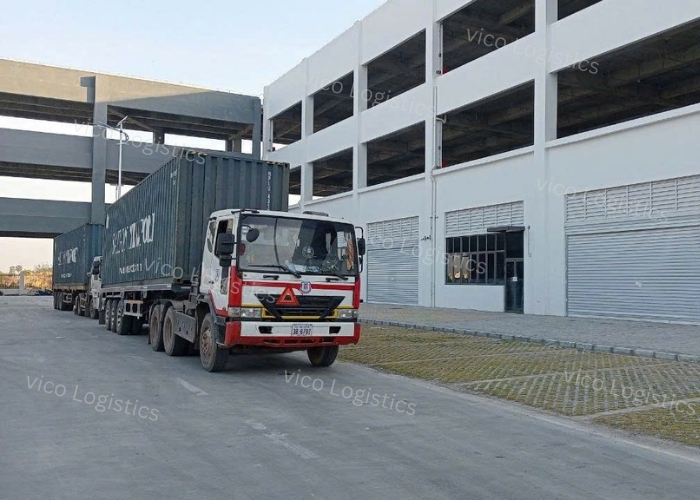
1.6 What is the expected transit time from my facility in Vietnam to my destination in Cambodia?
Transit time can vary based on your cargo’s origin in Vietnam, the delivery point in Cambodia, border traffic, and whether customs procedures are smooth or delayed. On average, shipments from southern Vietnam to Phnom Penh take one to two days. Longer distances or shipments that require special handling may take longer. We provide a realistic timeline in every quotation so your supply chain planning remains accurate.
1.7 How are border delays handled, and are standby or detention fees applicable?
Border delays can occur due to document discrepancies, random inspections, or congestion. If a truck is held beyond a standard grace period, standby or detention fees may apply. These charges cover vehicle downtime and driver waiting costs. Our quotations define the free waiting time allowed and the hourly rate applied thereafter. We also advise on how to minimize these risks through proper documentation.
1.8 Is cargo insurance included, or should I arrange it separately?
Cargo insurance is not always included by default, but we strongly recommend it, especially for high-value or sensitive goods. Insurance coverage protects your cargo against damage, theft, or loss during transit. If you wish to include it in your quotation, we will calculate the cost based on the declared cargo value, usually at a percentage rate. Our team can explain your coverage options and recommend suitable policies.
1.9 What documentation do I need to provide to ensure a smooth shipment?
Smooth cross-border shipping depends heavily on accurate and complete documentation. You will need to provide the commercial invoice, packing list, HS code, Certificate of Origin (if applicable), and any product-specific permits or licenses. In some cases, Material Safety Data Sheets (MSDS) or phytosanitary certificates may be required. We offer a documentation checklist and guide you through the preparation process.
1.10 What information do you need to prepare a precise and complete quotation?
To prepare a Cambodia trucking quotation that accurately reflects your needs, we require specific shipment details such as origin, cargo type, and delivery timelines. These include: origin and destination addresses, cargo type and description, weight and dimensions, HS code, preferred timeline, and whether the goods require special handling. The more precise your input, the more tailored and transparent our quotation will be.
2. What Our Cross-Border Trucking Quotations Typically Include
We design our quotations to be clear, itemized, and relevant to your specific cargo and route. Here is an overview of what’s typically included in our quote for Vietnam–Cambodia trucking services.
2.1 Core Transportation Charges
Our pricing model for Vietnam Cambodia freight is built on clarity, customization, and efficiency, below is a breakdown of the most common components that influence cross-border trucking costs from Vietnam to Cambodia.
>> Optimizing Logistics in Cambodia with VICO’s Vietnam-Cambodia Cross-Border Service
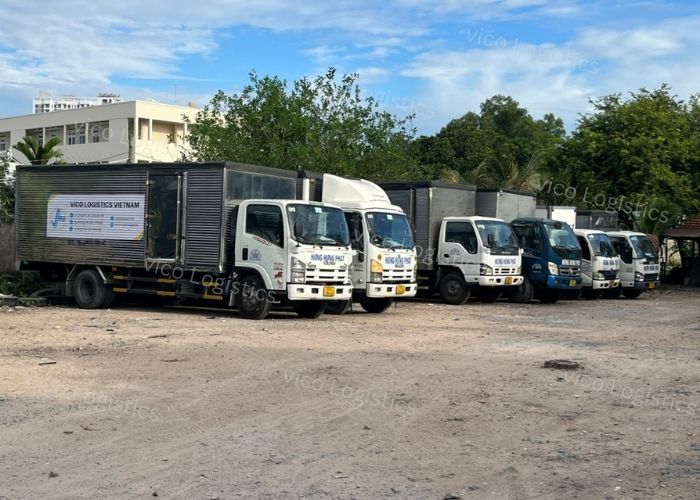
Trucking Charge
This is the primary cost associated with transporting goods from Vietnam to Cambodia by road. The rate is determined by several key factors, including the weight and volume of your shipment, the HS code which may influence customs classification, and the origin and destination points across both countries. The cost also reflects whether the shipment is being transported as full container load (FCL), less-than-container load (LCL), or via open truck. Door-to-door delivery tends to be more cost-inclusive than terminal-to-terminal options.
Vehicle Type
Depending on the nature and quantity of cargo, different types of vehicles may be required. Standard trucks are used for general freight, while containerized transport is common for consolidated shipments. Specialized equipment—such as flatbeds, low-bed trailers, or trucks designed for dangerous goods—may be necessary for oversized, sensitive, or regulated cargo.
Speed of Service
Transit time expectations influence pricing. Express delivery services prioritize faster border clearance and direct routing, which may require additional resources or scheduling flexibility. Standard services follow typical transit timelines and are more cost-effective for non-urgent cargo.
Client Classification
Clients with frequent shipments, consistent volume, or established logistics workflows may benefit from customized pricing models. These advantages may come from reduced documentation overhead, preferred routing, or negotiated rates based on volume forecasts for Vietnam Cambodia freight.
2.2 Customs and Border Procedures
Export Customs Clearance (Vietnam)
We handle all paperwork, export declarations, and coordination with Vietnamese customs authorities to ensure your goods are legally cleared for departure. This service includes HS code validation, invoice and packing list review, and document submission for trucking to Cambodia.
Import Customs Clearance (Cambodia)
Upon arrival in Cambodia, we coordinate the submission of import documents to local customs officials, handle physical inspection coordination (if required), and ensure cargo is released promptly. Our team supports the preparation of import permits if needed.
Import Duty (Cambodia)
Import duty is a tax imposed by Cambodian authorities based on the HS code and declared CIF value of the goods. This cost is mandatory and varies by product type. We assist clients in determining the correct duty classification to avoid delays or miscalculations in cross-border trucking costs.
Value Added Tax (VAT)
In Cambodia, VAT is levied on imported goods and is typically calculated on top of the import duty. This tax is government-mandated and must be paid before goods are released from customs.
Certificate of Origin (if applicable)
A Certificate of Origin (C/O) may be necessary to access preferential tariff rates under ASEAN or bilateral trade agreements. We guide clients through obtaining this document and ensure it's correctly formatted for acceptance by Cambodian customs.
C/O Approval Fee (Cambodia)
Once the C/O is submitted, Cambodian customs charges a fee to validate and apply it toward any tariff exemptions or reductions. We include this fee in your quotation when applicable.
Border Handling/Transshipment Fee
If cargo must be unloaded and transferred to a different truck at the border—typically due to vehicle regulations or security checks—a handling or transshipment fee will apply. We minimize this whenever possible through strategic routing.
Scanning or Inspection Fee
Random or mandatory inspections may be ordered by customs, triggering scanning or manual inspection fees. These are common for first-time shippers, flagged commodities, or high-value goods.
We guide you through every customs step so your Cargo trucking to Cambodia experience remains smooth and predictable.
2.3 Value-Added Services and Common Surcharges
Door-to-Door Delivery
This comprehensive service ensures your shipment is picked up at your specified origin and delivered to the final destination in Cambodia without the need for additional coordination. It simplifies planning and improves visibility.
Free Usage Period for Truck/Container
We provide a defined grace period for vehicle or container use at no extra cost. However, if loading or unloading exceeds the allowed time, demurrage or detention fees will apply. We inform clients in advance of these thresholds.
Standby Fees
If a truck must wait beyond the scheduled loading/unloading window due to delays in cargo readiness or documentation, standby fees are applied to cover the cost of downtime and rescheduling.
Overweight Fees
Shipments that exceed permissible weight limits incur penalties or require special permits. We calculate these charges based on local regulations and advise you in advance if your shipment is likely to exceed legal limits in Vietnam Cambodia freight
City Center or Restricted Zone Surcharges
Deliveries to congested urban areas or zones with time restrictions may incur surcharges. These are typically linked to local traffic regulations, night-time delivery restrictions, or permit requirements for oversized vehicles.
Overtime Customs Processing
If customs clearance must be arranged during non-business hours (e.g., weekends, national holidays), overtime fees are charged by authorities. We only proceed with such arrangements after confirming with the client.
Second Declaration Fee
In some cases, a second declaration may be required due to documentation errors, split shipments, or multiple product lines. We advise when this is likely and include the fee in your final invoice.
Cargo Insurance
While optional, we strongly recommend insuring your goods. Our insurance service is typically calculated as a percentage (e.g., 0.15–0.25%) of the cargo’s declared value and protects against loss or damage in transit.
Packaging or Crating Fees
If your cargo requires specialized crating, moisture protection, or palletization for safe transport, we can handle this in-house. Charges vary based on material, labor, and type of cargo.
Other Incidental Charges
Any additional or unexpected costs—such as bank processing fees, documentation courier charges, or special permissions—will always be communicated and justified prior to invoicing.
Factoring these services in advance helps avoid surprises and keeps your cross-border trucking costs fully under control.
2.4 Special Cargo Considerations
Some cargo types require more than just standard trucking services. At VICO Logistics, we are equipped to handle specialized shipments with appropriate care, compliance, and cost planning.
Specialized Clearance Fees
For regulated items such as dangerous goods (DG cargo), chemicals, or pharmaceuticals, customs processes are more rigorous and involve extra fees. We handle the necessary coordination and paperwork.
Special Transportation Requirements
Transporting hazardous materials, temperature-sensitive products, or large machinery often requires specialized trucks such as tankers, reefers, or low-bed trailers. These arrangements come with additional cost but ensure compliance and safety.
MSDS and Permits
Certain commodities—especially chemicals or flammable items—require Material Safety Data Sheets (MSDS) and official import permits. We assist in sourcing and filing these documents for smooth customs clearance.
Custom Packaging
Fragile, hazardous, or high-value goods often need reinforced packaging. We offer heat-treated wood crates, anti-shock foam protection, or temperature-controlled wrapping as needed.
Contact our team today to request your personalized Cambodia trucking quotation importers and exporters rely on for accurate, all-inclusive pricing.
Learn more our articles at:
1. EUDR Compliance Vietnam: A Critical Requirement for Coffee Exporters
2. Why Vietnam’s Industrial Parks Are Attracting Chinese Investors
3. Guide to Exporting and Transporting PVC Resin from Vietnam to Cambodia - VICO Logistics
---
VICO Logistics – Your Indochina Expert
Premium member of Eurocham, JCtrans, VICOFA, VITAS... associations
Owned offices: Hong Kong (headquarters), China (Shenzhen, Shanghai), Vietnam (Ho Chi Minh, Da Nang, Hai Phong).
Follow us for more valuable information
Youtube - Linkedin - Fanpage
Book now: https://vico.com.hk/#quotation
Contact us:
Email mkt4_hcm@vico.com.hk (For business development)
Hotline: Zalo/Whatsapp: (+84)901877108
WeChat China: imschylerla (CN/EN)
WeChat Vietnam: miauyen1577 (VN/EN)
